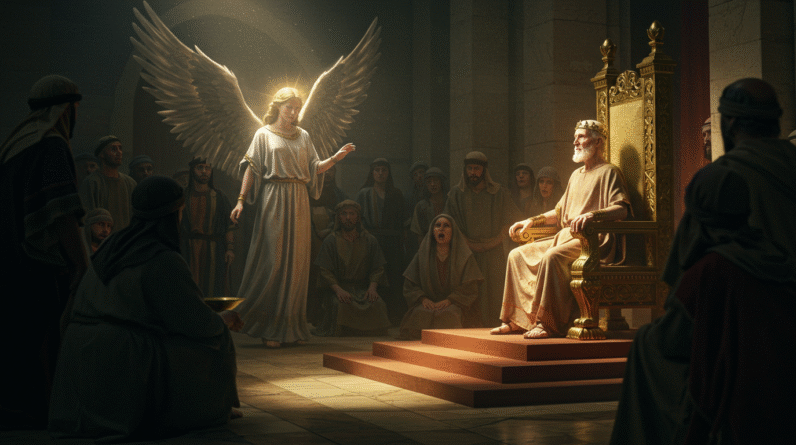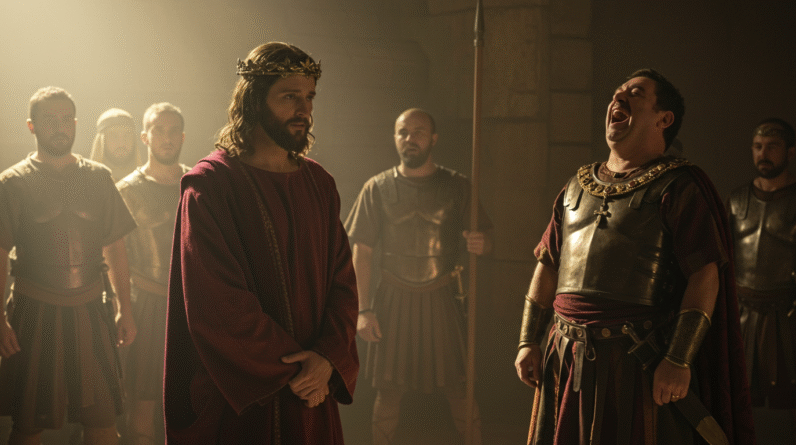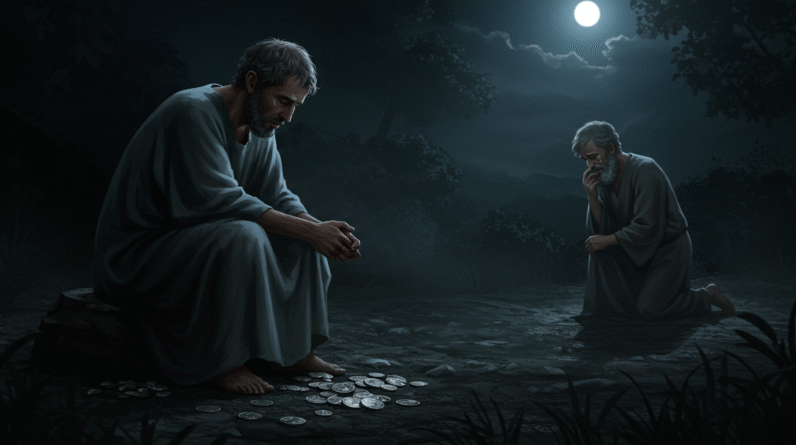Cain and Abel’s story is one of jealousy, judgment, and unexpected mercy. Genesis 4 reveals both the danger of sin and the depth of God’s grace.
Cain and Abel: The First Murder and God’s Mercy
Introduction
Have you ever wondered about the earliest stories of humanity and how they echo through our lives today? If you’ve caught yourself pondering these age-old tales, then let’s chat about Cain and Abel. This narrative, filled with layers of human emotion, divine intervention, and timeless lessons, invites us into a conversation that explores not only human nature but the extraordinary notion of mercy. The story, found in the Bible’s Book of Genesis, is both haunting and illuminating—a tale from which we can draw wisdom even in our modern lives.
Bible Reference: The Story of Cain and Abel
📖 Key Verse or Passage
One of the central verses that encapsulates the tragedy and redemption in the story of Cain and Abel can be found in Genesis 4:8-10. It reads: “Now Cain said to his brother Abel, ‘Let’s go out to the field.’ While they were in the field, Cain attacked his brother Abel and killed him. Then the Lord said to Cain, ‘Where is your brother Abel?’ ‘I don’t know,’ he replied. ‘Am I my brother’s keeper?’ The Lord said, ‘What have you done? Listen! Your brother’s blood cries out to me from the ground.’”

Understanding the First Murder
The Seeds of Jealousy
Let’s face it—sibling rivalry isn’t new. Perhaps at some point, you’ve witnessed it or felt it yourself. But Cain and Abel’s story takes sibling rivalry to another level. As the first children of Adam and Eve, the stakes were high, and the expectations immense. Cain, a farmer, and Abel, a shepherd, both offered sacrifices to God. The narrative tells us Abel’s offering found favor with God while Cain’s did not. And there it was—the seed of jealousy.
What is it about envy that can gnaw at the core of a person? As you hear this story, it becomes apparent that jealousy festered within Cain, leading to catastrophic decisions. This is a relatable emotion, isn’t it? How often do we find ourselves dwelling on comparisons, wondering why someone else seems favored over us? Cain’s reaction, while extreme, serves as a mirror reflecting our innermost struggles with jealousy and insecurity.
The Act of Violence
In a moment of unchecked emotion, Cain invites Abel to the fields, and there, the first murder occurs. It was raw, incomprehensible violence—the ultimate act of betrayal. Cain’s actions were not just about eliminating perceived competition; they were about expressing anguish and frustration that had no clear outlet. It’s chilling to imagine, but it raises questions that challenge us: How do we handle deep-seated anger? What limits, if any, do we set for ourselves, and at what point could we teeter into darkness if not careful?
Cain’s question, “Am I my brother’s keeper?” reverberates through the ages. Consider this: Are we responsible for one another’s well-being? In communities, families, and friendships, what does it mean to care for those around us? This pivotal question from the Bible prompts us to reflect deeply on our responsibilities to each other.
The Reaction of God
Divine Intervention and Judgment
In the aftermath of the murder, God’s engagement in the story is compelling. He doesn’t punish Cain immediately but instead confronts him with questions. This divine interrogation gives Cain the opportunity to reflect on his actions. God’s judgment is both just and merciful—He banishes Cain but places a mark upon him to protect him from the vengeance of others. It’s a profound display of mercy amid justice. Imagine the complexity of divinity that doesn’t relish in revenge but contemplates the heart of the sinner.
God’s Mercy
This element of God’s mercy is staggering—how many times do we receive grace when we least deserve it? For Cain, despite his egregious actions, God’s response includes an aspect of protection. Protected yet punished, Cain represents a duality we often grapple with: Can someone be forgiven despite committing acts that seem unforgivable? This story tells us that while consequences for our actions are inevitable, mercy might still find its way into our lives if we’re open to it.
Reflecting on Lessons for Today
Embracing Accountability
So, where does this leave us? For one, it leaves us pondering the lives we live. Are we accountable for our emotions and actions? Do we acknowledge the darker parts of our nature, such as jealousy or anger, and seek constructive paths? The story of Cain and Abel is an invitation to take stock of our own lives and relationships, nudging us towards introspection and growth.
Understanding Divine Mercy
Moreover, this narrative sheds light on the divine attribute of mercy—often baffling in its limitless capacity. It reminds us to practice forgiveness, both toward others and ourselves. This isn’t to say that forgiveness is easy, but the model presented in this story encourages us to pursue it actively, continually striving to understand and embody the mercy we have received.
Conclusion
As you consider the story of Cain and Abel, let it serve as more than just an ancient tale. Allow it to be a framework that pushes you to reflect on your actions, emotions, and relationships. The questions it raises remain relevant thousands of years later, urging us to embrace accountability, wrestle with our imperfections, and extend mercy wherever possible.
Remember, stories like this are passed down not just to inform but to transform. So, dive deeper into the text, allowing it to challenge you and enrich your understanding of what it means to be human under the watchful yet merciful gaze of the divine.

🔍 Explore More Bible Insights:
✅ 1. Serving God by Serving Others
Tone: Practical, inspirational, servant-hearted
🔹 “Live Out Your Faith with These Reads”
✅ 2. The Prayer of Jabez – 1 Chronicles 4:10
Tone: Encouraging, bold faith, personal growth
🔹 “Ask Boldly, Live Fully – Keep Reading”
✅ 3. The Promise of Eternal Life – 1 John 2:25
Tone: Reassuring, hope-filled, theological
🔹 “Secure in Christ – Explore More”
✅ 4. Lessons from the Battle of Jericho – Joshua 6
Tone: Obedience, victory through faith, historical insight
🔹 “Victory Through Faith – Read Next”
As a ClickBank Affiliate, I earn from qualifying purchases.
Acknowledgment: All Bible verses referenced in this article were accessed via Bible Gateway (or Bible Hub).
“Want to explore more? Check out our latest post on Why Jesus? and discover the life-changing truth of the Gospel!”








